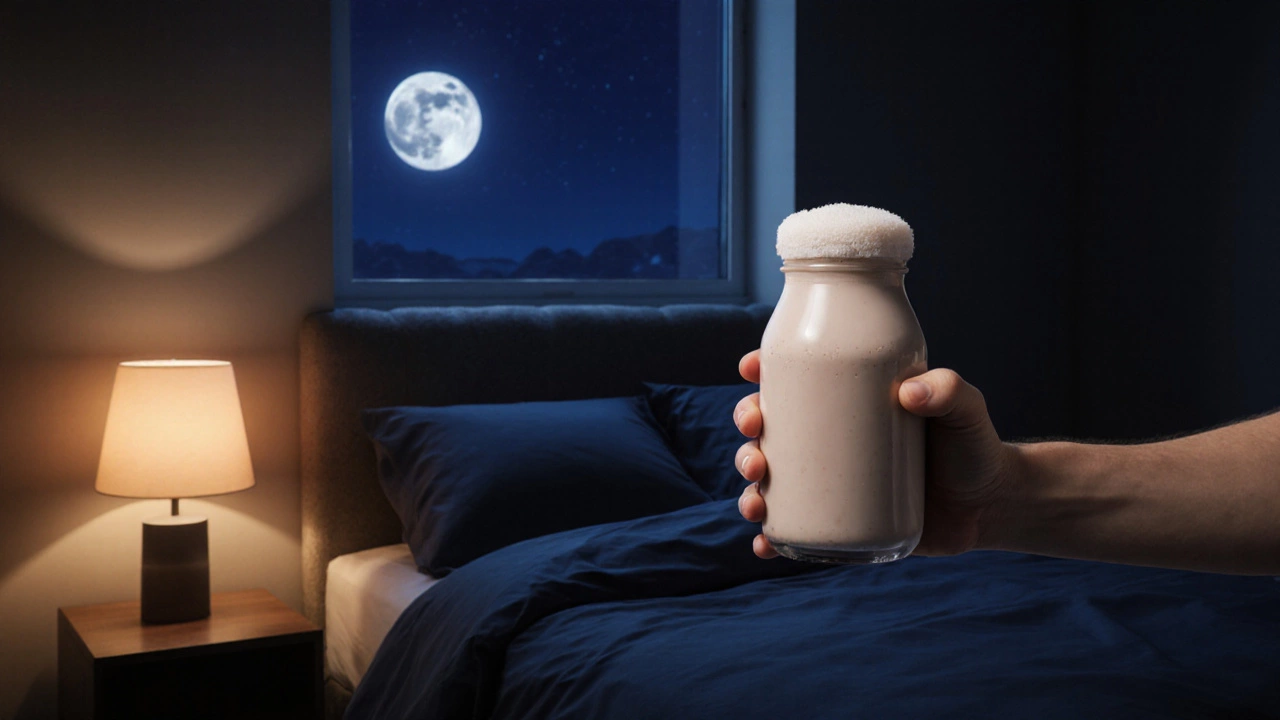Muscle Recovery Sleep: Why Restful Nights Boost Your Gains
When you focus on muscle recovery sleep, the practice of using restful, high‑quality sleep to speed up muscle repair and growth after training. Also known as sleep‑enhanced recovery, it sits at the intersection of two big ideas: Sleep, the natural, cyclic process that restores brain and body functions and Muscle Recovery, the cellular rebuilding that happens after exercise. The link is simple – deep, uninterrupted sleep releases growth hormone, spikes protein synthesis, and clears metabolic waste. Add to that the role of Protein, the building blocks that muscles need to rebuild fibers and you have a recipe that many athletes swear by. Even Restorative Yoga, a low‑intensity practice that calms the nervous system and prepares the body for sleep can tip the balance, turning a regular night into a recovery session. In short, muscle recovery sleep pulls together sleep quality, nutrition timing, and gentle movement to create a super‑charged repair cycle. Beyond the basics, the circadian rhythm acts as a master clock, dictating when the body releases melatonin and when growth hormone peaks. Aligning bedtime with your natural rhythm – usually a window between 10 pm and 12 am – maximizes deep‑sleep time. A cool sleep environment (around 65 °F) and a dark room further enhance slow‑wave sleep, which is the phase most responsible for tissue regeneration. Hydration also matters; a modest water intake before bed keeps cells hydrated without causing disruptive trips to the bathroom.
Practical Steps to Optimize Your Muscle Recovery Sleep
Start by establishing a consistent bedtime routine: dim lights, shut off screens, and practice a few minutes of restorative yoga or gentle stretching to lower cortisol levels. Pair the routine with a light protein snack – think a whey shake, Greek yogurt, or a handful of nuts – within 30 minutes of finishing your workout. This small dose of amino acids fuels overnight protein synthesis while the body is already in repair mode. Consider adding magnesium or a low‑dose melatonin supplement if you struggle to fall asleep, but keep dosages modest to avoid grogginess. Keep the bedroom cool, quiet, and free of clutter; a breathable mattress and blackout curtains help maintain the deep‑sleep window. Stay mindful of caffeine and alcohol intake in the evening, as both can fragment sleep architecture and blunt growth hormone release. Finally, track your progress with a simple sleep journal or a basic fitness tracker (yes, they can be worth it) to notice patterns – more consistent sleep length usually translates into clearer gains in strength, endurance, and overall well‑being. By weaving together sleep hygiene, strategic protein, and calming movement, you turn every night into a powerful muscle‑repair workshop. Below you’ll find articles that dive deeper into each of these pieces, from the science of sleep cycles to protein‑shake timing and yoga routines designed for recovery.

Nighttime Protein Shakes: Benefits, Risks & Best Practices
Maeve Larkspur Oct 14 0Explore whether a protein shake before bed aids muscle recovery, learn the best protein types, optimal dosage, potential downsides, and practical bedtime shake recipes.
More Detail